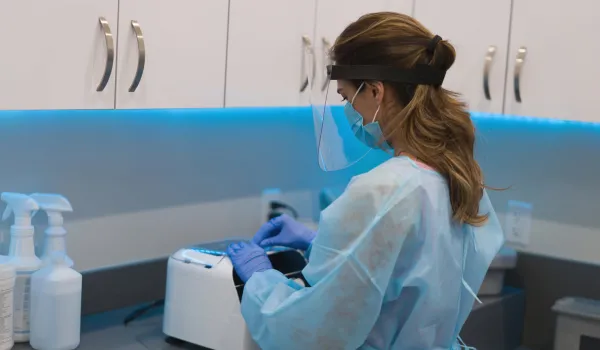Concorde Staff

The birth of social media has brought with it a slew of questions regarding the professionalism of the Internet and what part social media can play in the job market, specifically when searching for health care careers.
According to professional development website Jobvite, 92 percent of U.S. companies use social media and networks to recruit and discover talent. That was an increase of 14 percent from just five years ago. The top three sites? Facebook, Twitter and, at No. 1, LinkedIn. Two-thirds of companies are recruiting through Facebook, while 54 percent use Twitter.
Still, use caution when applying for health care careers
With social media now playing a greater and greater role in recruitment for health care careers, many applicants are wondering just how prominent to make social media a vital part of their resumes.
Some don't believe social media has any place on a resume.
"I do not feel using social media on your resume is positive," said Marcus Alexander, BSM, Graduate Employment Specialist at Concordes campus in Memphis, Tenn.
Others believe that some social media is OK, but you must choose wisely when it comes to what type and how much.
"I would not include any links to social media sites other than a LinkedIn profile," said Dan Garule, Senior Graduate Employment Specialist at Concordes campus in Kansas City, Mo. "Other forms of social media usually depict a more personal side of your life and can sometimes end up leading the employer to question whether you are a good fit before you have a chance to prove that you are."
"Who you are in your personal life may not be the same person you are in your professional life."
Other social media considerations when applying for health care careers
While the consensus on LinkedIn appears pretty positive, there seem to be mixed views on other forms of social media.
Hyperlinks to URLs might seem a good idea on the surface, but many companies utilize electronic resume readers which convert everything to plain text. That would nullify any hyperlinks. Other hiring managers prefer to print out resumes they receive electronically. Again, hyperlinks would be useless.
Experts vary about Facebook. On the one hand, prospective employers are liable to check out your page whether you include it on your resume or not. But, Facebook pages do tend to be more personal. They key is, just make sure you don't have anything negative on your Facebook page that could determine whether you land a job.
Same can be said of Twitter. Use with caution.
Tips for optimizing the resume with social media
Gerrit Hall, CEO and co-founder of RezScore, a free web app that reads, analyzes and grades resume, strongly believes in linking to social media on a resume. The more transparent you make yourself to potential employers, he reasons, the more comfortable they'll be hiring you.
Three more tips from Hall:
- Fact-check yourself. Constantly update your information to ensure that none of it becomes outdated.
- Don't just copy/paste. Pasting your entire resume in the "about me" section will flood your profile, and the formatting probably won't be correct. Instead, select a handful of solid phrases, anecdotes or facts.
- Use keywords for SEO. Keywords are king in today's resume world. Study similar job listings for words that pop up frequently.
So, the takeaway for all our Concorde students and graduates about to embark on health careers is this - if you do choose to incorporate social media links on your resume, think carefully about how you do so and proceed with caution.

Take The Next Step Towards a Brighter Future
We have a Concorde representative ready to talk about what matters most to you. Get answers about start dates, curriculum, financial aid, scholarships and more!



